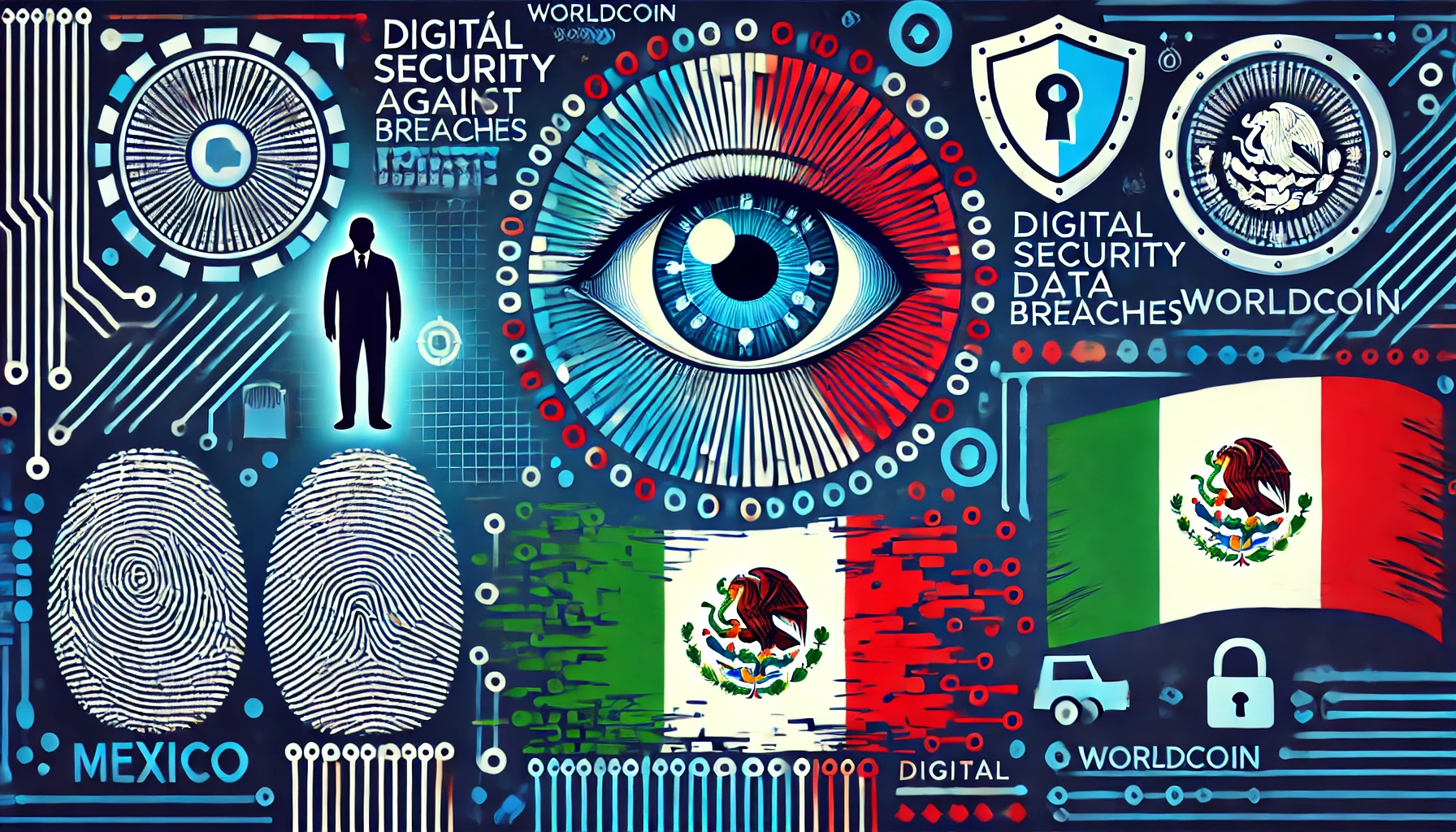Worldcoin, the biometric cryptocurrency project backed by OpenAI's Sam Altman, is launching a new privacy feature called Face Auth

Worldcoin, a biometric cryptocurrency project backed by OpenAI's Sam Altman, is rolling out a new privacy feature called Face Auth, which it says can help stop fraud online.
Launched last July, Worldcoin is a blockchain-based eyeball-scanning "proof of personhood" initiative, combined with a financial network, that asks users to scan their irises using a proprietary biometric device it calls The Orb.
In exchange, the user is given a "digital ID" as well as a cryptocurrency token and a way to make payments using that token. Part of the idea behind the project, as previously outlined by Altman, is that advancements in AI are making it increasingly difficult to tell whether a piece of digital content was made by humans rather than a bot or algorithm.
The new Face Auth feature is a facial comparison program that can only be activated by the person who has already verified their digital identification, or "World ID." This is meant to provide additional security for online purchases, financial transactions and sign-in applications.
Damien Kieran, the chief privacy officer for Tools for Humanity, the developer of Worldcoin, told Newsweek that Face Auth creates an additional layer of security that Apple's Face ID, and other similar technology currently on the market, does not offer.
"It's a unique match between the person seeking to use the World ID and the person who made the World ID," Kieran said. "It's way more secure than anything we can do with Face ID."
To use Face Auth, a Worldcoin user would take a selfie on their phone, which would match the face to a scan taken by The Orb. The device is able to implement more fraud measures than any phone is capable of, the company claims.
"We want to ensure a match between the World ID and the face that's actually using or opening the World ID," Kieran said. "We want to make that link as close as possible."
"Every time that you go to your iPhone, your iPhone is sort of taking a new photo of you and it's comparing it to an on-device biometric. It's comparing a one-to-one match," Kieran said. "What we're doing is we're comparing it one-to-billions. It's your photo on your device and it's always that unique check with that photo."
Kieran, who has an identical twin, explained how Face ID on the iPhone can't tell the differences between he and his brother, allowing his twin to unlock his device without authorization. Face Auth, however, prompts a person to tilt their head, "checking various angles of your face to compare them against the photo" in the system and is thus much more accurate.
"Doing this means that identical twins cannot fool it," Kieran said.
This work builds on the Tool for Humanity principles of security, anonymity, transparency and personal control, he said. Kieran said Face Auth is part of a broader vision of how consumer technology can be used in an online world increasingly flooded with AI content and driven by bots.
Kieran, who was a vice president and deputy general counsel at Twitter, pointed to that company's years-long battle to eliminate bots on its platform, which have only increased since Elon Musk took control of the service and renamed it X.
"The problem with that is it's very, very difficult for a company at that scale to understand whether a thing interacting with its service is a computer or a person," Kieran said. "The solution to that is typically collect more data...The bots become stronger and more powerful and the more information you share about yourself, actually the more at risk you become."
In a world of catfishing, scamming, deepfakes and identity theft, Worldcoin is hoping to provide privacy, choice and control back to the users, Kieran said. As AI advances, its ability to mimic human-like behaviors has the potential to disrupt online interactions.
"A lot of how people build trust is through interactions," said Adrian Ludwig, chief information security officer for Tools for Humanity. "All of this is how we establish identity and become comfortable with someone."
Ludwig said the problem with AI is its ability to create behavior and content based on replicating human behavior. A 2022 report by the European Union's law enforcement agency suggested that as much as 90% of internet content could be synthetically generated by 2026.
"What we're building solves those issues and some issues that we don't even fully understand that are going to happen in the coming years," Kieran told Newsweek. "The product is effectively privacy."
Face Auth has been piloted in select locations where Worldcoin is operating, such as Argentina. Kieran said the early results are "really impressive" in terms of accuracy.
The project is still developing how often a person's unique ID needs to be updated by The Orb, as people age and their appearances change.
Worldcoin is one of
The above is the detailed content of Worldcoin Launches New Privacy Feature Face Auth to Stop Fraud Online. For more information, please follow other related articles on the PHP Chinese website!
 Worldcoin Unveils “Meaningful Updates” to Its Controversial Crypto ProjectOct 18, 2024 am 07:06 AM
Worldcoin Unveils “Meaningful Updates” to Its Controversial Crypto ProjectOct 18, 2024 am 07:06 AMWorldcoin project co-inventor and OpenAI CEO Sam Altman, along with fellow Worldcoin co-inventor Alex Blania, CEO of Tools for Humanity
 Colombia's Consumer Protection Agency Probes Worldcoin Over Alleged Biometric Data BreachesAug 23, 2024 pm 09:14 PM
Colombia's Consumer Protection Agency Probes Worldcoin Over Alleged Biometric Data BreachesAug 23, 2024 pm 09:14 PMWorldcoin, co-founded by OpenAI CEO Sam Altman, gives out “World IDs” whenever people use an Orb to SCAN their irises.
 Worldcoin Rebrands as ‘World,’ Launches Layer 2 Blockchain and New Orb Devices to Reach 1 Billion UsersOct 21, 2024 pm 07:32 PM
Worldcoin Rebrands as ‘World,’ Launches Layer 2 Blockchain and New Orb Devices to Reach 1 Billion UsersOct 21, 2024 pm 07:32 PMWorldcoin, co-founded by Sam Altman and Alex Blania, has rebranded as ‘World’ and announced ambitious plans to reach 1 billion users.
 Sam Altman is battling with governments over your eyesAug 19, 2024 pm 12:11 PM
Sam Altman is battling with governments over your eyesAug 19, 2024 pm 12:11 PMMore than a dozen jurisdictions have either suspended the Worldcoin project’s operations or looked into its data processing
 Worldcoin (WLD) and XRP (XRP) Emerge as Thursday's Biggest Gainers as the Broader Market Moves SidewaysSep 13, 2024 pm 03:32 PM
Worldcoin (WLD) and XRP (XRP) Emerge as Thursday's Biggest Gainers as the Broader Market Moves SidewaysSep 13, 2024 pm 03:32 PMWLD, the native currency of the blockchain-based identity verification project, popped more than 9%, emerging as the best-performing cryptocurrency in the last 24 hours.
 Worldcoin (WLD) Removes "Coin" from Its Name, Registers 2 Million UsersNov 02, 2024 am 09:54 AM
Worldcoin (WLD) Removes "Coin" from Its Name, Registers 2 Million UsersNov 02, 2024 am 09:54 AMSam Altman, the CEO of OpenAI, co-founded the cryptocurrency project Worldcoin (WLD), which recently declared that it would no longer use the term
 FX Guys ($FXG) Is About To Shock The Market – The Returns In Sight Could Surpass BONK And Worldcoin?Nov 07, 2024 am 07:02 AM
FX Guys ($FXG) Is About To Shock The Market – The Returns In Sight Could Surpass BONK And Worldcoin?Nov 07, 2024 am 07:02 AMCrypto market analysts are turning their attention to FX Guys ($FXG), a new blockchain ICO that could outperform top altcoins like Bonk (BONK) and Worldcoin (WLD).
 Mexico Launches Inquiry Into Worldcoin's Biometric Data Collection PracticesNov 03, 2024 pm 04:18 PM
Mexico Launches Inquiry Into Worldcoin's Biometric Data Collection PracticesNov 03, 2024 pm 04:18 PMWorldcoin has sparked controversy across global jurisdictions. Worldcoin's aim is to create a universal digital identity system using biometric data

Hot AI Tools

Undresser.AI Undress
AI-powered app for creating realistic nude photos

AI Clothes Remover
Online AI tool for removing clothes from photos.

Undress AI Tool
Undress images for free

Clothoff.io
AI clothes remover

AI Hentai Generator
Generate AI Hentai for free.

Hot Article

Hot Tools

mPDF
mPDF is a PHP library that can generate PDF files from UTF-8 encoded HTML. The original author, Ian Back, wrote mPDF to output PDF files "on the fly" from his website and handle different languages. It is slower than original scripts like HTML2FPDF and produces larger files when using Unicode fonts, but supports CSS styles etc. and has a lot of enhancements. Supports almost all languages, including RTL (Arabic and Hebrew) and CJK (Chinese, Japanese and Korean). Supports nested block-level elements (such as P, DIV),

Notepad++7.3.1
Easy-to-use and free code editor

SAP NetWeaver Server Adapter for Eclipse
Integrate Eclipse with SAP NetWeaver application server.

VSCode Windows 64-bit Download
A free and powerful IDE editor launched by Microsoft

DVWA
Damn Vulnerable Web App (DVWA) is a PHP/MySQL web application that is very vulnerable. Its main goals are to be an aid for security professionals to test their skills and tools in a legal environment, to help web developers better understand the process of securing web applications, and to help teachers/students teach/learn in a classroom environment Web application security. The goal of DVWA is to practice some of the most common web vulnerabilities through a simple and straightforward interface, with varying degrees of difficulty. Please note that this software






